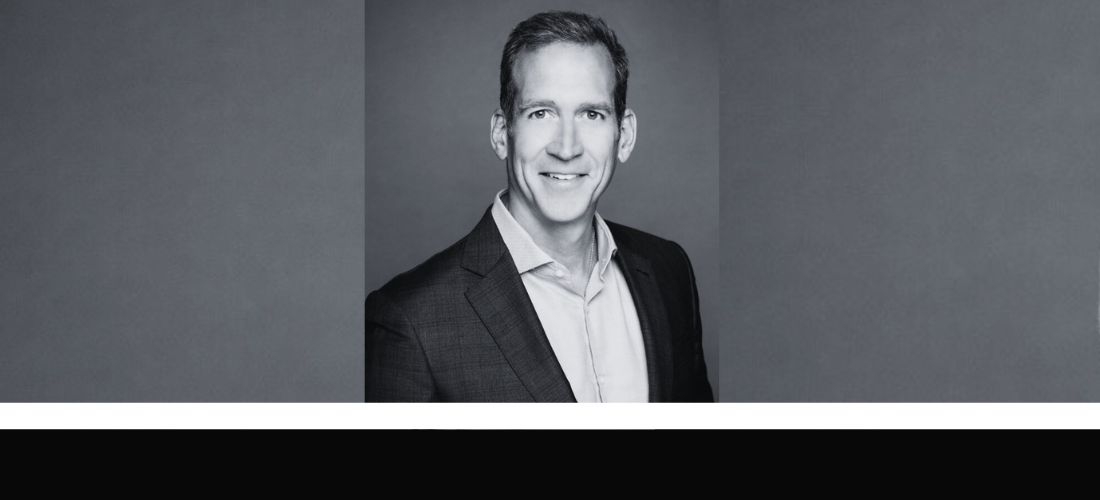Meet Thomas Priore, the leader and Chief Executive Officer of Priority since its inception in August 2005. As a founding member and Executive Chairman, he has been the driving force behind Priority’s remarkable journey. Under Mr. Priore’s strategic direction, Priority swiftly evolved from a startup to become the 13th largest merchant acquirer in the US, and a leading provider of commercial payment solutions to major global institutions.
A distinguished graduate of Harvard University and holder of an MBA from Columbia University, Thomas Priore is a seasoned professional with a strong track record of success in the finance industry.
Please tell us a little bit about your business – what is Priority all about?
We founded Priority in 2005. The company’s idea originated from my investment banking experience and my brother’s experience in the payments industry. After witnessing the impactful shift in residential mortgage lending from paper to digital processes, we knew we could bring a modern and better payment experience to business owners.
Utilizing our understanding of business challenges and customer feedback, we harnessed the market’s potential to develop cutting-edge innovative solutions for payments and banking that save time, costs, and effort for all parties involved. Within a remarkably short period of 22 months, Priority experienced rapid growth and achieved positive cash flow.
We’ve expanded our services beyond small and medium-sized businesses to encompass payments and banking at scale solutions for business-to-business and enterprise segments. Today, we are enthusiastic about the future as we continue diversifying our offerings and venture into new industries. Priority has grown to be the fourth-largest non-bank payments processor in the US. With over 800,000 clients spanning multiple industries, we process $115 billion+ in annual payment volume through our proprietary solutions.
Tell us a little bit about your background and how you started your company.
As I mentioned, I have an investment banking and management background. I founded an asset management firm that grew from a structured finance business into a $20 billion company. My exploration of private equity and venture capital opportunities led me to recognize the emerging potential of digital payments. Based on these findings, my co-founders and I envisioned an institutional-grade organization that focused on creating a unified experience for handling transactions supported by robust technology. Over time, I eventually transitioned from my previous role to focus exclusively on Priority.
What are your plans for the future? How do you plan to grow this company?
Most consumers experience modern commerce through cell phones and mobile apps, but that is only half the equation. The other half of the equation is figuring out how to accelerate businesses by bringing together solutions that solve their problem areas or challenges. We focus on creating better payments and banking experiences through technology because cash flow and working capital are necessary to run a business well.
Priority shapes what lies ahead on our terms based on what customers need. From healthcare to construction, for any industry that needs to conduct transactions, we can understand the ecosystem and deliver a better way to manage processes while enabling seamless transactions in an easy and elegant platform.
We offer the ability to collect, store, and send money from this platform, Passport, our unified commerce engine. We focus on growth by continually enhancing our platform and offering value-added services that scale with our customers while providing a high level of support that fuels business growth and working capital needs.
How do you separate yourself from your competitors?
We set ourselves apart from our competitors by striving to go beyond what payment processing or merchant acquiring could do as separate services. We have layered on Banking as a Service (Baas) capabilities so that most banking needs can be handled in the platform. While payments is a service we offer, we also have treasury ledger capabilities to handle various transaction types, which many of our competitors don’t have the agility or ability to offer. We have the appropriate licensing, bank partnerships, and regulatory measures to deliver our services nationally.
Additionally, our advantage partially stems from good fortune and timing. Since we were founded in the early 2000s, we swiftly transitioned to cloud infrastructure, enabling us to develop modern software applications from our inception. In contrast, many of our peers founded in the ’70s and ’80s relied on legacy mainframe systems, limiting their agility and causing them precious time when they considered moving and adapting to digital technologies.
What were the top three mistakes you made starting your business, and what did you learn from them?
- Mistakes are opportunities to learn and can help one become wiser and stronger. It is not about making mistakes but how you emerge from them and what you learn. Mistakes earlier in my entrepreneurial journey prompted a pivotal realization of what I wanted to do and how I wanted to lead, ultimately leading me to grow stronger professionally and take those lessons to Priority to accomplish our goals.
- My experiences have significantly influenced decisions around Priority’s direction as they underscored the value of leadership, diversification of the business, and the importance of strategic planning. From our leadership team’s lessons and professional journeys, we have also taken proactive measures to integrate adaptability and resilience into Priority’s operational framework. We achieved this by diversifying our offered services, expanding capabilities, and enhancing our agility.
- It’s also a mistake to rest on what has been accomplished and not forecast future possibilities. So we are heavily invested in improvements, and diversification for Priority has become paramount. These two areas are how we’ve preemptively tackled external factors like economic shifts, changing regulations, and other unforeseen challenges that may upset a typical business ecosystem. At the same time, we’ve managed to fortify our marketplace position and grow our company with a strong culture and hardworking staff.
Tell us about your marketing process. What has been the most successful form of marketing for you?
Our marketing methodology is characterized by a steadfast and resolute approach focused on our vision, strategy, and goals. We are committed to solving company challenges, small and large, and we lead with an attitude of service and respect internally, which shows up externally as we take care of our customers and anticipate and address their needs.
We do this by bringing a clear message to our entire workforce, including our sales team and client services representatives. We also share our messages with external partners in financial services so that they can convey how we bring value, enhance processes, streamline for efficiency, and improve cash flow. We provide business-friendly training and resources and demonstrate how our offered working capital-based solutions are more compelling than our competitors. We conduct marketing and communications campaigns, organic branded social media outreach, and email marketing to generate leads and awareness.
Lastly, we don’t shy away from showing our value by offering a complimentary spend analysis report. We can deliver the actual value of our B2B and enterprise-level solutions in this report while we explain it and introduce a more innovative way to work. From there, our prospects and customers recognize our value and quickly see bottom-line growth by implementing our offerings.
What are you learning now? Why is that important?
Recently, I’ve developed an interest in understanding the profound impact of language on leadership, and a lot of training is available in this development area. The words we use hold more influence than we often acknowledge. I’m more thoughtful and mindful about my communication as I’ve matured in emotional intelligence. It’s not solely about age but rather the growth and maturity that play a role in your awareness of how words and actions are impactful.
What’s a productivity tip you swear by?
The nature of my day can vary significantly, ranging from focusing on technical aspects to exploring internal business opportunities alongside various teams. It’s a dynamic and fluid process that requires me to have discipline and trust in my leadership team to do the right thing for the business because I know that I can’t do it all.
So, my productivity tip is to advise other entrepreneurs to work with people they like and are as committed as you are to your vision, and you’ll largely figure it out. As a leader, surrounding yourself with people who will help carry out your company’s mission, vision, and values on your leadership team is essential. Those leaders should feel empowered to employ productive people who will help carry out the organizational strategy and execute it towards success.
Can you recommend one book, one podcast, and one online course for entrepreneurs?
I highly recommend the book “Atlas Shrugged,” especially for those in business. Another impactful read is “Grit: The Power of Passion and Perseverance” by Angela Duckworth. This book delves into the concept of mindset and its influence on behavior. A similar perspective is shared in “Mindset: The New Psychology of Success” by Carol Dweck, which highlights the significance of mindset in leadership and behavior.
What is your favorite quote?
“No virtue in the world is so often rewarded as perseverance.” It’s frequently attributed to Calvin Coolidge.
What valuable advice would you give new entrepreneurs starting out?
Dedicating time to activities that bring a sense of centeredness is essential, particularly as a leader. Whether you are an entrepreneur or hold a leadership position within a company, cultivating a leadership mindset requires preparation.
A habit that bolsters my productivity as an entrepreneur is having discipline. I’ve dedicated myself to morning workouts for almost 25 years. This routine prepares me for the day ahead, both mentally and physically. It acts as a catalyst and enhances my perspective and resilience in what I encounter daily. Once I conquer my workout, I can tackle any challenging tasks that come my way, making the rest of my day more manageable.
Entrepreneurs should make time for self-care and finding their anchor. As leaders, we must find a routine that helps us maintain balance and clarity amid our work demands.
How do you personally overcome fear?
In my journey of conquering fear, I attribute my success to possessing grit. I’m determined not to let fear dictate my identity or legacy, whether in making mistakes, not taking chances, or in other areas that life can throw our way. Grit goes beyond talent; it’s where perseverance, determination, and passion come together as a trait that helps push you to the next level and leads you closer to success.








